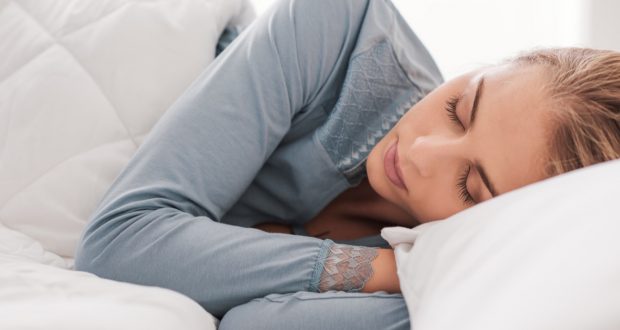By: Guest Author
Published: August 17, 2021
Written By Molly Barnes, Digital Nomad Life- Guest Contributor
Sleep is supposed to be relaxing, but as anyone who has a hard time sleeping can tell you, that’s not always the case. Insomnia, sleep apnea, restless leg syndrome, and a host of other sleep disorders can affect how happy, alert, and productive you are.
According to the CDC, adults need at least seven hours of sleep a night for optimal health, but more than one-third of adults (about 35%) don’t get enough of it. And here’s something even more interesting: The statistics are different in different parts of the country. Sleep can be harder to come by in Kentucky, Georgia, Mississippi, and Nevada (that Vegas nightlife!), for example.
Does that mean you’re liable to get less sleep when you travel to different places? Not necessarily. But it’s understandable that Las Vegas, with its windowless casinos, could affect your sleep patterns.
The patterns of night and day can affect your circadian rhythm, which regulates your sleep patterns. That’s why it can be difficult to get a good night’s sleep during an Alaskan summer, when it’s light outside most of the time, or during winter, when it’s mostly dark.
Add to that the difficulty of enduring a bumpy ride or sleeping on a less-comfortable bed — whether it’s in a hotel, RV, or on the ground at a campsite — and you’ve got a recipe for further sleep trouble. Same if you’re flying and you have to deal with turbulence or jet lag.
All of these examples raise the question: How do you improve your chances of getting a good night’s sleep on the road? Here are some ideas.
Minimize Stress
Vacations themselves can be stressful, from planning to packing to moving from one place to the next on a daily or near-daily basis. The last thing you need is more stress on top of all that.
So it’s important to make sure you have as many bases covered as you can, so you don’t lie awake worrying or stay awake trying to fix problems that crop up.
- Before you head out on a road trip, have your car serviced. Make sure your oil, spark plugs, tires, brakes, etc., are all in good condition. Take along a toolkit with things like jumper cables and a jack. And consider signing up for roadside assistance, which is available through insurance companies and RV clubs.
- Speaking of RVs, if you’re traveling in one full-time and working remotely, it’s important to stay in contact with your home base. That might mean investing in a cell signal booster, taking along extra chargers, and considering a portable generator to keep the lights on (or the AC or heater on) in emergencies.
- Be sure you have proper insurance and all the information you need for the road, including health information like your medical contacts, prescription numbers, insurance card, etc.
- Be sure your finances are in order. Save up enough money for your trip ahead of time, pricing out the cost of gas, lodging, meals, admission prices to attractions you want to see, and souvenirs, with a little left for emergencies. Use a credit card to use for rental car deposits and incidentals at your hotel to help you stretch your budget. Otherwise, hundreds of your dollars could be tied up for several days. If you don’t have great credit, a secured credit card can provide that cushion and help you build your credit at the same time.
Take Care of Yourself
Care for yourself physically and mentally by doing things like:
- Cutting back on caffeine, especially close to bedtime.
- Avoiding going to bed hungry. But don’t eat just before going to sleep, either.
- Foregoing alcohol before bed — a glass of wine may seem to relax you, but it can hinder a good night’s sleep in the long run. Avoid any fluids at all, in fact, so you won’t have to worry about waking up to use the restroom.
- Exercising regularly (but again, not right before bed): Aim for 30 minutes a day — and remember that it doesn’t have to be strenuous to be beneficial.
- Eat foods that help relax you and make you feel sleepy like spinach, bananas, nuts, cherries, and kiwis.
Create a Sleep-Friendly Environment
It’s important to practice good sleep hygiene, which simply means doing things that promote healthy sleep. It helps to create a sleep-friendly environment by:
- Decluttering your bedroom or sleeping space.
- Blocking out light with effective window shades. (Use pieces of cardboard or install blackout shades if you need to).
- Having a comfortable mattress or other sleeping surface that doesn’t keep you awake with a stiff back or neck.
- Taking a good pillow. (If you’re staying at a hotel or motel, your own pillow might help you sleep a lot better than a stiff or squishy generic one).
- Bringing enough blankets to stay warm, especially if you’re traveling in colder climates.
- Avoiding bright screens like cellphones, computer screens, and TVs close to bedtime.
Doing these things won’t guarantee you a good night’s sleep, but it will make one a lot more likely. And a good night’s sleep, in turn, will make it a lot more likely that you’ll enjoy your travels. So good night, and bon voyage (not necessarily in that order).
Bio: Molly Barnes is a full-time digital nomad, exploring and working remotely in different cities in the US. She and her boyfriend Jacob created the website Digital Nomad Life to share their journey and help others to pursue a nomadic lifestyle.
The views expressed herein this article, written by a guest contributor, do not necessarily represent those of the Red Hot Mamas organization. The content is for informational purposes and should not substitute the advice of your doctor.
 Red Hot Mamas In Charge of Change.
Red Hot Mamas In Charge of Change.




